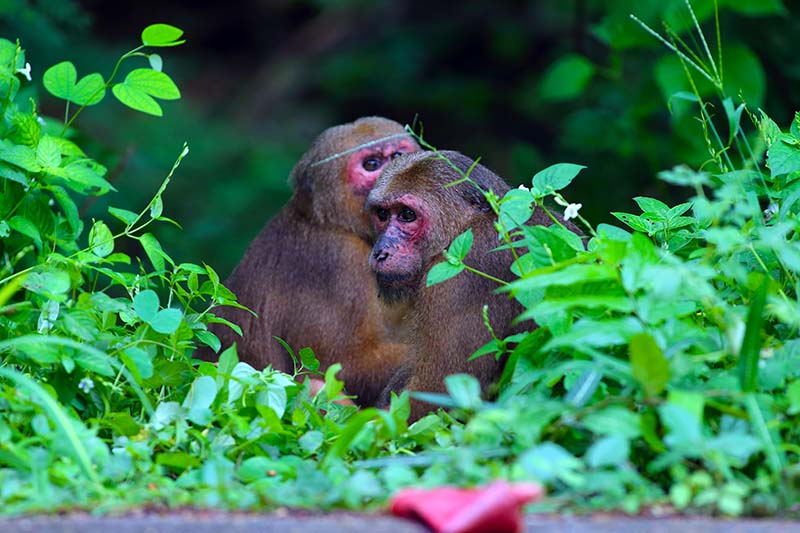2-minute read
If you are looking at the animal above and wondering what on Earth it could be, say hello to Vampyroteuthis infernalis, commonly known as the vampire squid of Hell. Pretty scary, right? Don’t worry, despite the squirm-inducing moniker, these multi-limbed denizens of the extreme deep are not befanged blood suckers—but they are extremophiles.
And what is an extremophile? An organism that can survive or even thrive in a habitat that would be intolerable for most living creatures, including environments that are extremely hot or cold, low on oxygen, or contain life-threatening substances we all hope to avoid like toxic waste, organic solvents, or heavy metals. One such hostile environment is the OMZ, or oxygen-minimum zone—the place the vampire squid calls home.
Let’s take a quick look at some of the specially adapted creature features that enable this shape-shifting 12-inch cephalopod to navigate life in the dark depths of temperate and tropical oceans, according to scientists at the Monterey Bay Research Institute:
- A unique cloaked body structure (Dracula’s cape or fur-lined umbrella?) that allows the animals to stay submerged 2-3,000 feet below the surface.
- Extremely efficient blood cells and metabolism that require less oxygen—must-have items for life in the OMZ.
- In addition to the squid’s standard eight arms, two retractable modified arms used to scoop up tiny floating food particles.
- Glands that produce giant plumes of bioluminescent mucus to frighten (or disgust) predators.
- Extraordinarily large, highly developed eyes that enable the deep ocean dweller to see in very low light.
- Specialized light-emitting skin cells that blink “back off” at interlopers.
So… glow-in-the-dark mucus, gigantic eyes, retractable arms, blinking skin, efficient blood cells, and a low-energy lifestyle. That’s what it takes to survive in an extreme, low-oxygen environment, squid-wise. Interestingly, through studying extremophiles like the vampire squid, scientists have discovered that many are closely related to the universal ancestor of all living organisms on our planet. Learning how extremophiles adapt to such inhospitable conditions is also helping to inform theories about the possible existence of extraterrestrial life forms. Squids in space?

ICYMI Nature News
100 New Deep-Sea Species
Speaking of deep-sea species, marine researchers have discovered 100 new to science creatures in waters off the coast of New Zealand. Take a look.
Corals That Shouldn’t Exist
Scientists have announced yet another startling deep-sea discovery—a cold-water coral reef off the West coast of Canada that has been described as a miracle of nature. Read how the colorful creatures have survived in some of the most ancient waters in the world here.
Incredibly Rare Gray Whale Sighting
Extinct in the Atlantic Ocean for more than 200 years, a gray whale has been spotted diving and resurfacing off the Massachusetts coast. Welcome back, big fellow.
Little Fish, Big Noise
Did you know that there is a fish the width of a human thumbnail that can make a noise as loud as a gunshot? Listen here.
Underwater Photographer of the Year
The winners of the 2024 Underwater Photographer of the Year have been announced, and you can see their amazing images right here.




















































